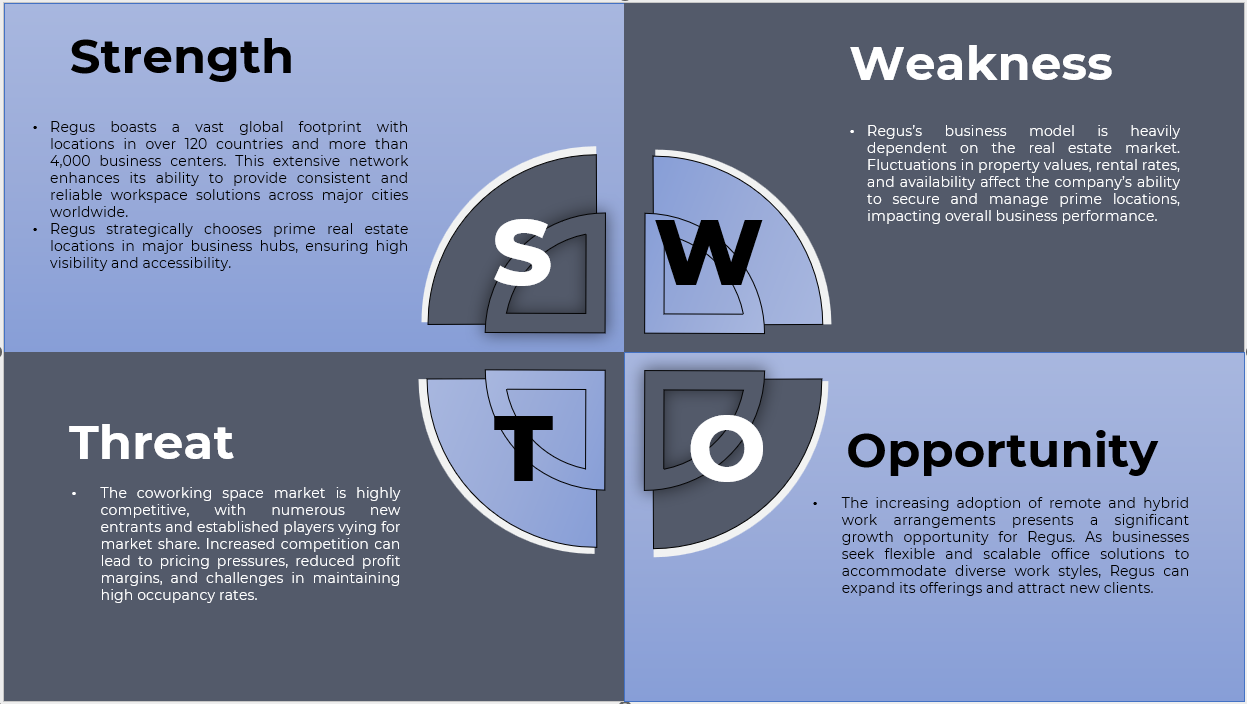Coworking Market Overview
Product Overview and Scope of Coworking Market
Coworking is referred to as a working arrangement in which people from different teams and companies come together to work in a single shared space. The first coworking spaces began appearing in the early 2000s. They attracted mostly self-employed freelancers and web entrepreneurs searching for an alternative to working from coffee shops, business centers, and home offices. Since then, coworking has spread throughout the world, and coworking spaces have changed to adapt to the methods in which people work. Coworking space is characterized by shared facilities, services, and tools. Sharing infrastructure in this way helps to spread the cost of running an office across members, but coworking spaces are more than just a way of reducing overhead.
Coworking spaces are gathering places for professionals from all backgrounds to exchange knowledge and generate fresh concepts. They are also community centers and hubs for collaboration. The origins of coworking may be traced to the earliest "hackerspaces" in Europe, and the social side of coworking spaces is still very much present today. Coworking space can be a lifesaver for individual workers, but it also plays a big part in any company’s strategy to shift toward a more flexible way of working. Most coworking spaces don’t require you to commit to a long-term contract. Instead, freelancers and startups can take advantage of shorter leases and flexible pay-as-you-go terms, which can help keep things affordable for young companies just starting out. While frictionless networking goes hand-in-hand with the community aspect of coworking spaces we mentioned above. When you share a physical space with workers from your own industry and beyond, you unlock potential opportunities, build strong relationships, and develop lasting connections with new people.
Further, the demographics of coworking spaces are changing. They’re no longer dominated by the classic stereotype of Silicon Valley startups and creative freelancers. Instead, modern coworking spaces attract a broad community, from small businesses to enormous international companies. The most popular profession in coworking spaces globally is IT, followed by marketing and public relations. Several factors such as increasing number of people working from home or remotely, awareness about creating sustainable coworking spaces, increasing number of freelancers and several other factors are responsible for growth of coworking market
Global Coworking Manufacturers Profiles/Analysis
Regus Group Companies
Regus Group Companies Basic Information, Manufacturing Base, Sales Area, and Competitors
|
Sr. No. |
Item |
Description |
|
1 |
Company Name |
Regus Group Companies |
|
2 |
Website |
www.regus.com |
|
3 |
Established Date |
1989 |
|
4 |
Headquartered |
Luxembourg |
|
5 |
Market Position/ History |
Mark Dixon founded the company in 1989 as a single provider of office space in Brussels, Belgium. The company swiftly expanded its business concept of providing flexible workspace options, such as serviced offices and meeting rooms, to many global locations. Regus pioneered the notion of co-working spaces, responding to organizations' changing needs for flexible and expandable office arrangements. Regus has expanded over the decades to become one of the leading providers of flexible workplaces, with a presence in multiple cities across several nations. The company operates as a subsidiary of International Workplace Group |
|
6 |
Sales Area |
Worldwide |
|
7 |
Competitors |
|
|
8 |
CEO |
Mark Dixon |
|
9 |
Ownership Type |
Private |
|
10 |
Contact Information |
26 Boulevard Royal, Luxembourg Tel: +352 2299991 |
Business Segment/ Overview:
Regus Group specializes in delivering flexible workspace solutions to meet the different demands of organizations and professionals worldwide. The company's options include serviced offices, co-working spaces, meeting rooms, and virtual office services, which are geared to fulfill the needs of businesses ranging from small startups to major corporations. Regus' business model focuses on providing scalable and adaptive workplace settings that are both cost effective and operationally flexible. The current business segments of the company comprise of • Office Space
• Coworking
• Virtual Offices
• Meeting Rooms
• Membership
• Business Address
• Telephone Answering
• Event Space
• Private Offices
• Custom Offices
• Day Offices
• Hot Desks
• Dedicated Desks
• Workplace Recovery
The coworking segment of the company includes a collection of services meant to increase professionals' flexibility and productivity. Members can work in dynamic coworking spaces or use private offices in shared environments. Throughout the day, the reception personnel assists and greets guests, delivering a flawless experience. Coworking customers can reserve private conference spaces as needed. Business-grade WiFi, shared printers, and complete IT support are included to help operate more efficiently. Members also get access to a global network of more than 4,000 business lounges. The Regus app enables users to effortlessly book and manage their coworking spaces, resulting in a more simplified and comfortable experience.
Recent Developments:
|
Year |
Latest News |
|
August 2024 |
New partnership to launch coworking hub: Denholtz Properties, a commercial real estate developer based in Red Bank, has entered into an agreement with Regus to manage a 9,729-square-foot coworking space at 140 Broad St., a 37,351-square-foot office building situated in downtown Red Bank. Regus will oversee the entire second floor of the building, offering flexible hybrid and coworking solutions tailored to the needs of individuals and businesses in Red Bank and the surrounding areas. |
S.W.O.T Analysis


